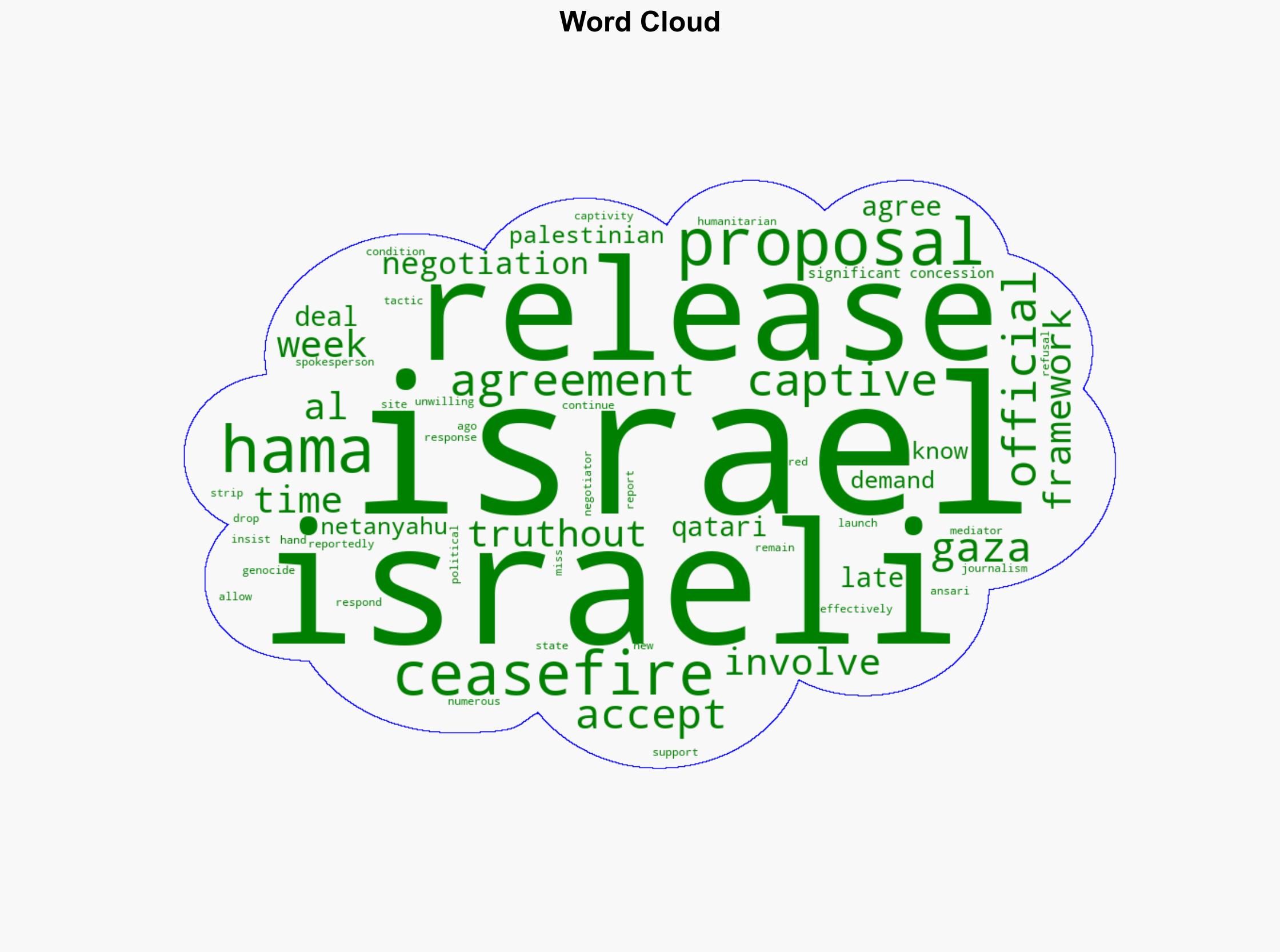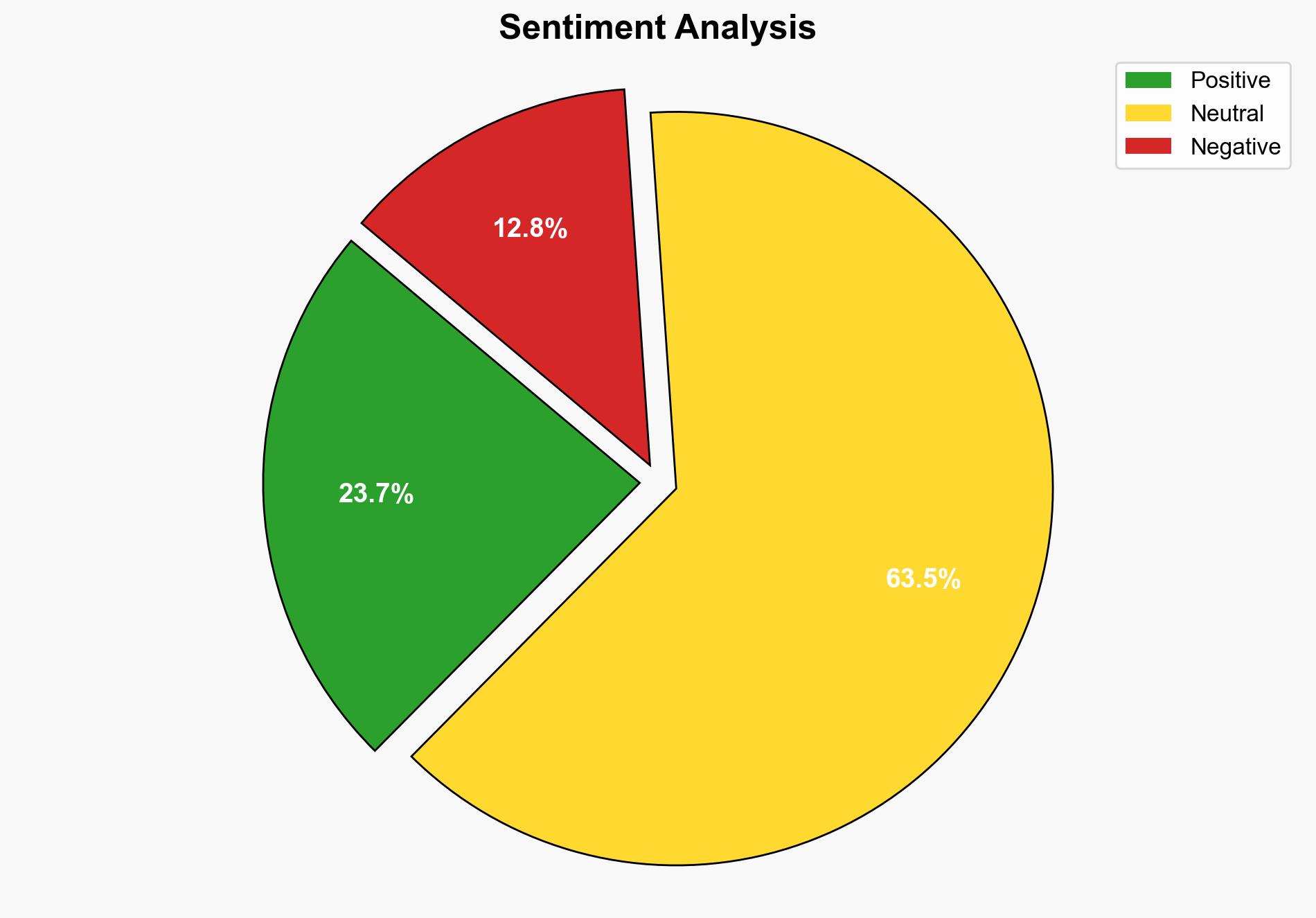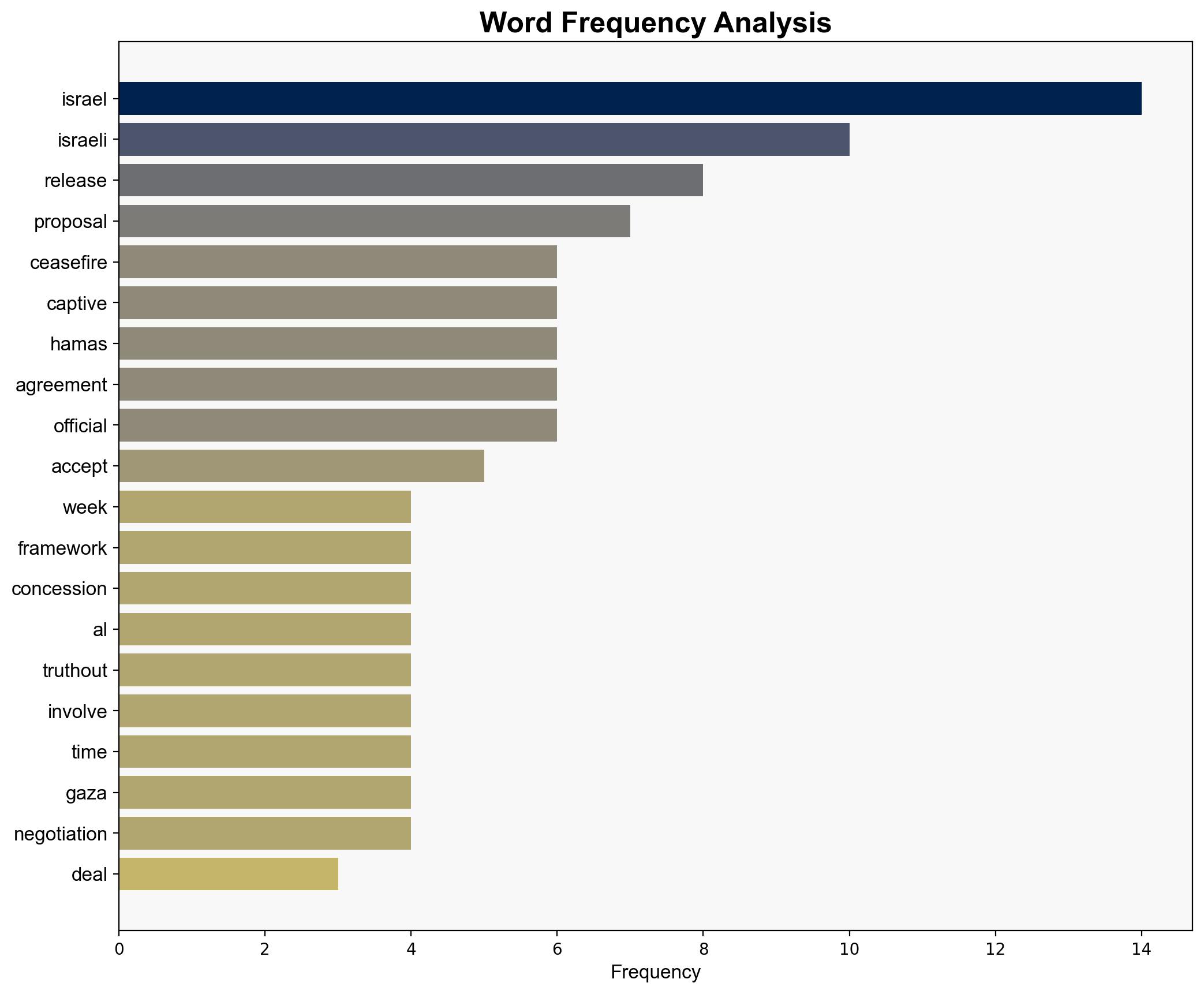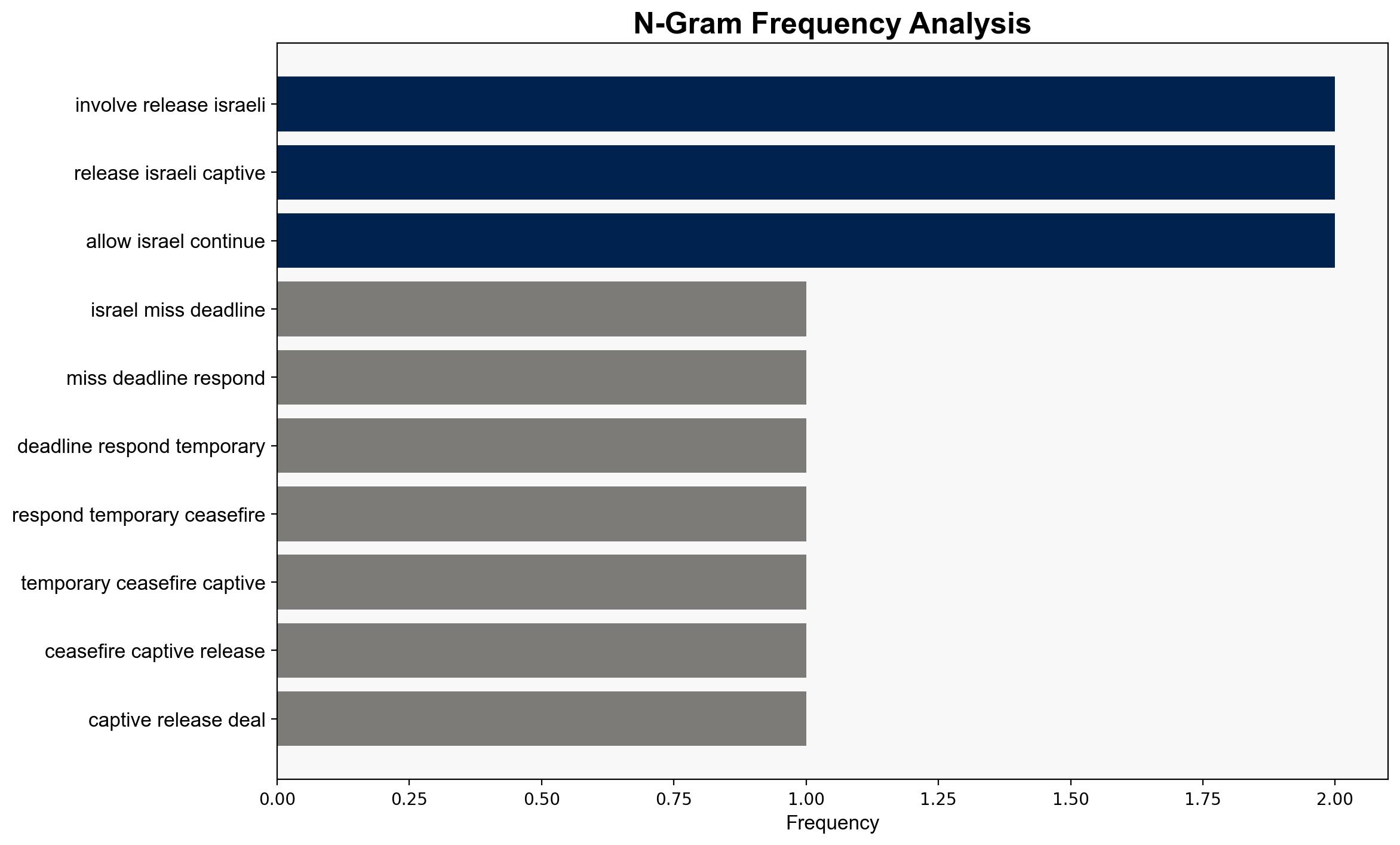Israel Misses Its Own Deadline to Respond to Ceasefire Deal Accepted by Hamas – Truthout
Published on: 2025-08-26
Intelligence Report: Israel Misses Its Own Deadline to Respond to Ceasefire Deal Accepted by Hamas – Truthout
1. BLUF (Bottom Line Up Front)
The most supported hypothesis is that Israel is intentionally delaying its response to the ceasefire deal to gain strategic advantage and exert pressure on Hamas. Confidence level: Moderate. Recommended action: Engage in diplomatic efforts to clarify Israel’s position and explore alternative negotiation pathways to prevent further escalation.
2. Competing Hypotheses
1. **Hypothesis A**: Israel is intentionally delaying its response to the ceasefire deal to gain strategic leverage and apply pressure on Hamas for further concessions. This hypothesis is supported by Israel’s history of imposing new conditions and the strategic advantage gained by prolonging negotiations.
2. **Hypothesis B**: Israel’s delay is due to internal political disagreements and logistical challenges in formulating a cohesive response. This is supported by the complexity of the proposed deal and potential political discord within Israel’s government.
Using ACH 2.0, Hypothesis A is better supported due to the consistent pattern of Israel’s negotiation tactics and the strategic benefits of delaying a response.
3. Key Assumptions and Red Flags
– **Assumptions**: Hypothesis A assumes Israel has a coherent strategy to delay negotiations, while Hypothesis B assumes internal political dynamics are the primary cause of delay.
– **Red Flags**: Lack of transparency in the deal’s details and Israel’s response timeline raises questions about the true intentions behind the delay.
– **Blind Spots**: Potential influence of external actors, such as the United States, is not fully explored in the intelligence.
4. Implications and Strategic Risks
– **Escalation**: Continued delay could lead to increased tensions and potential military escalation in the region.
– **Geopolitical Impact**: Prolonged negotiations may strain Israel’s relationships with mediators like Qatar and Egypt.
– **Humanitarian Concerns**: Delays exacerbate humanitarian conditions in Gaza, increasing international pressure on Israel.
5. Recommendations and Outlook
- Engage in back-channel diplomacy to ascertain Israel’s true intentions and explore alternative negotiation frameworks.
- Scenario Projections:
- Best Case: Israel and Hamas reach a mutually beneficial agreement, leading to a temporary ceasefire and improved humanitarian conditions.
- Worst Case: Breakdown in negotiations leads to renewed hostilities and regional instability.
- Most Likely: Continued delays with intermittent skirmishes, maintaining the status quo.
6. Key Individuals and Entities
– Benjamin Netanyahu
– Mohammed al-Hindi
– Maje Al Ansari
– Steve Witkoff
7. Thematic Tags
national security threats, regional focus, negotiation tactics, geopolitical strategy





